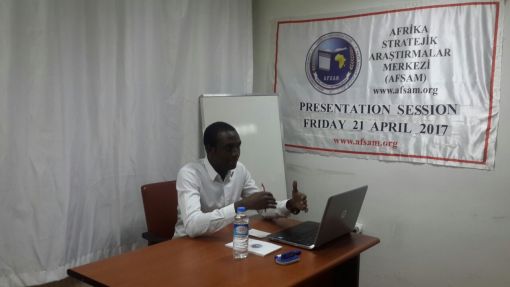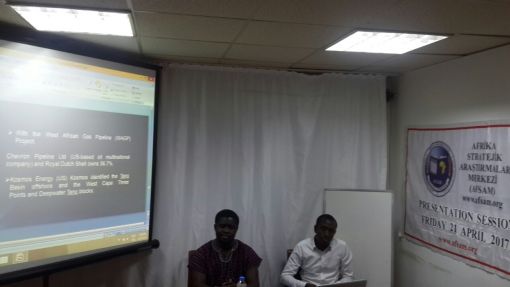
PRESENTATION SESSION 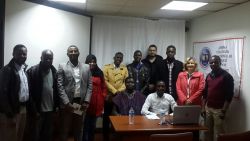 21 April 2017 Presenters: Ignatious Kobbina YANKEY, Ghana. Ibrahim Bachir ABDOULAYE, Niger. Place: AFSAM Offices Ankara. The program of the day was attended by academicians from different universities in Ankara. The invited guest were Professor Doctor Emel G.Oktay from Hacettepe University International Relations Department and Mr. Mustafa Efe the President of AFSAM (Centre For Africa Strategic Studies). The program started with a warm welcome speech from Timothy Perego the coordinator of AFSAM Office in Ankara as the presenters got ready for their presentations. The first presenter was Mr.Ignatious Kobbina Yankey from Ghana doing Masters in International Relations at Hacettepe University, he presented a topic:”Ghana’s Energy and Great Powers İnterest’’. He first stated that “oil has more to do than what you all expect”, one of the factors he mention is the demography of a country, it is essential to every country as it determines how the distribution can be done. It promotes easy flow of oil supply and Ghana’s cape 3 points are very suitable for international trade. However the economic growth has slowed down due to unfavorable government policies. There is great power interest in Ghana oil and Gas which affects the control as well as the gains of these resources. Great powers like America and China are in competition to gain control which leads them to use all kinds of strategies as they have become oil and gas preditators. China’s policy towards Africa has been labeled a policy of “an aid for oil strategy “or even a neo-colonial policy. Africa and China agreed to accelerate cooperation with special effect to exploitation and exploitation of resources. Africa in the eyes of United States of America as proclaimed by (NIC) National Intelligence Council estimates by 2015, 25% of USA oil imports will come from West Africa. Most African rich oil states are owned by America and China.3 American Presidents has visited Ghana so far due to diplomatic relations to invest in oil and gas companies. Ghana is rich in oil as a country but unfortunately only gets 13% of oil and gas as their share and the government only receives 5%. There are strategies employed by great powers like giving aids, physical infrastructure development and lending of loans so as to gain access to investments. Ghana faces many challenges when it comes to controlling energy resources for example border dispute with Cote divore, inadequate trained professionals, illegal oil bunkering and so forth. To improve on these situations there should be diversification of oil for the benefit of the country, renationize, energy security policy should be comprehensive and coherent. Private enterprises should not be encouraged and they should promote transparency and good governance. The 2nd presentation was done by Ibrahim Bachir Abdoulaye from Niger studying Masters in International relations at Ankara University. He presented a topic on “Finding Political Solution to Mali’s Crisis”. In his presentation he explained how the French were in control of Mali from colonization till up to date. The French came with a divide rule approach and divided people through religion and politics. Before the French came neighboring countries like Mali, Algeria and Niger used to move without borders. When the French came to power and even when the countries gained their independence they still controlled the borders. Mali Civil War refers to armed conflicts that started from January 2012 between the Northern and Southern parts of Mali in Africa. On 16 January 2012, several insurgent groups began fighting a campaign against the Malian government for independence or greater autonomy for northern Mali, an area known as Azawad. The National Movement for the Liberation of Azawad (MNLA), an organization fighting to make Azawad an independent homeland for the Tuareg people, had taken control of the region by April 2012. Long term solutions should be found to end Mali crisis not only domestic but international intervention is needed to find everlasting solutions in ending internal conflicts. The United Nations should directly be involved in the struggle against transnational Islamist terrorism, weapons proliferation, and illicit trafficking by international organized crime. The United Nations must operate in countries with harsh terrain, vast expanses, poor communications, and porous borders. The fight to defeat jihadist militias in Northern Mali has masked the underlying countrywide political crisis that feeds the conflict. By engaging in intercommunal, inclusive dialogue to address past governance failures, Mali can begin to move toward stability and legitimacy. |
|
1532 kez okundu
YorumlarHenüz yorum yapılmamış. İlk yorumu yapmak için tıklayın |





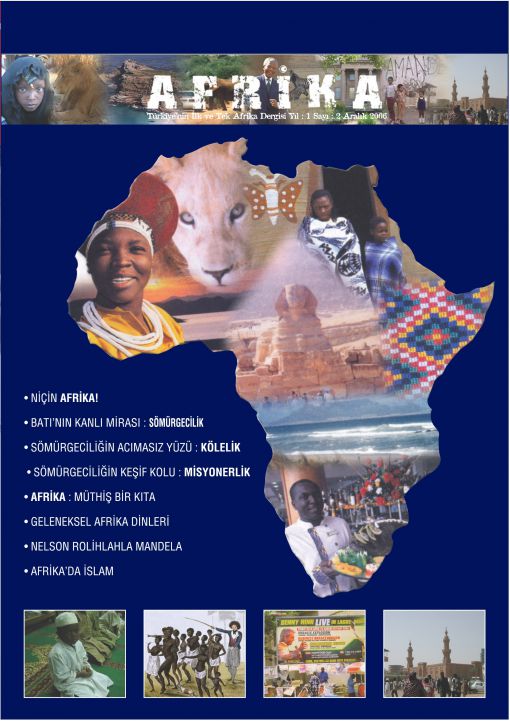
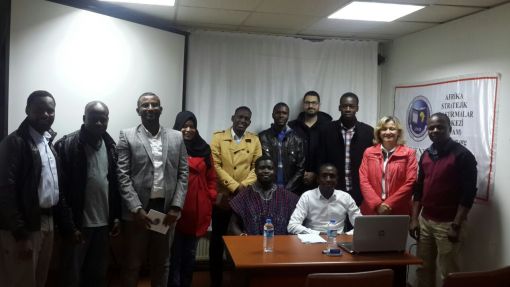
.jpeg)
